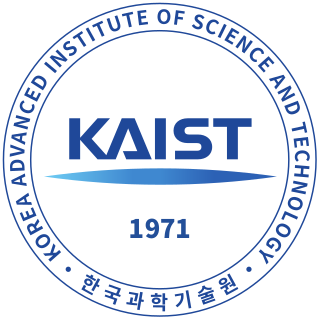
The Korea Advanced Institute of Science and Technology (KAIST) is a national research university located in Daedeok Innopolis, Daejeon, South Korea. KAIST was established by the Korean government in 1971 as the nation's first public, research-oriented science and engineering institution. KAIST is considered to be one of the most prestigious universities in the nation. KAIST has been internationally accredited in business education, and hosting the Secretariat of the Association of Asia-Pacific Business Schools (AAPBS). KAIST has 10,504 full-time students and 1,342 faculty researchers and had a total budget of US$765 million in 2013, of which US$459 million was from research contracts.
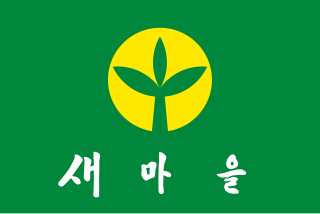
The Saemaul Undong, also known as the New Community Movement, New Village Movement, Saemaul Movement or Saema'eul Movement, was a political initiative launched on April 22, 1970 by South Korean president Park Chung-hee to modernize the rural South Korean economy. The idea was based on the Korean traditional communalism called Hyangyak and Dure (두레), which provided the rules for self-governance and cooperation in traditional Korean communities. The movement initially sought to rectify the growing disparity of the standard of living between the nation's urban centers, which were rapidly industrializing, and the small villages, which continued to be mired in poverty. Diligence, self-help and collaboration were the slogans to encourage community members to participate in the development process. The early stage of the movement focused on improving the basic living conditions and environments, whereas later projects concentrated on building rural infrastructure and increasing community income. Though hailed as a great success by force in the 1970s, the movement lost momentum during the 1980s due to the unexpected assassination of Park Chung-hee.
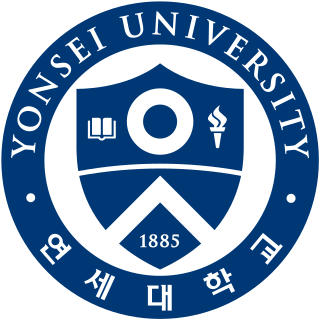
Yonsei University is a private research university in Seoul, South Korea. As a member of the "SKY" universities, Yonsei University is deemed one of the three most prestigious institutions in the country.

Korea University is a private research university in Seoul, South Korea, established in 1905. The university is included as one of the SKY Universities, a popular acronym referring to Korea's three most prestigious universities. Korea University is named after Goguryeo.
SKY is an acronym used to refer to three widely considered the most prestigious universities in South Korea: Seoul National University, Korea University, and Yonsei University. The term is widely used in South Korea, both in media and by the universities themselves.
Underwood International College, Yonsei University was founded in 2006 as a constituent college of Yonsei University. Based in Seoul and Incheon, South Korea.

The University of Florida College of Pharmacy is the pharmacy school of the University of Florida. The College of Pharmacy was founded in 1923 and is located on the university's Gainesville, Florida main campus. The college offers the entry-level Doctor of Pharmacy (Pharm.D.) degree as the first professional degree for students entering the profession. The college offered a Working Professional Pharm.D. (WPPD) program for bachelor's-trained pharmacists already in practice with its last cohort of students enrolled in 2016. Additionally, various graduate degrees are offered. The professional program is fully accredited by the American Council on Pharmaceutical Education. Since 2011 the college has been offering online degree programs at the graduate level, such as the Forensic Science Program, Pharmaceutical Chemistry Program and Clinical Toxicology Program. In total the College of Pharmacy received over $32 million in total Research Revenues in 2021.
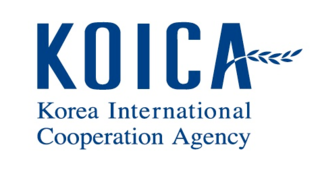
The Korea International Cooperation Agency was established in 1991 by the Ministry of Foreign Affairs of South Korea as a governmental organization for Official Development Assistance (ODA). KOICA's goal is to enhance the effectiveness of South Korea's grant aid programs for developing countries by implementing the government's grant aid and technical cooperation programs. KOICA is led by three-year-term president of the board who is appointed by the President upon the recommendation of Foreign Minister.
The Korea–Yonsei rivalry is the college rivalry between two universities located in Seoul, South Korea, Yonsei University and Korea University. Located within the same city, the campuses are only thirty minutes apart. Korea University's symbol and mascot is the Tiger and Yonsei University's is the Eagle. Hence, match-ups between the two institutions are referred to as "Tigers vs Eagles".

The Sanford School of Public Policy at Duke University is named after former Duke president and Governor of North Carolina Terry Sanford, who established the university's Institute for Policy Sciences and Public Affairs in 1971 as an interdisciplinary program geared toward training future leaders. When the School's current building on Duke's West Campus opened in 1994, the structure was named—and the Institute renamed—in honor of Sanford. The building was designed by Architectural Resources Cambridge, Inc. in a Modern Gothic style. The Sanford School offers bachelor's, master's, and doctoral programs in Public Policy.

The KDI School of Public Policy and Management is a government-run graduate school located in Sejong City, South Korea and is affiliated to the Korea Development Institute (KDI) and a member of the National Research Council for Economics, Humanities, and Social Sciences. The school was first established in 1997 in Dongdaemun District, Seoul, before moving to Sejong City in 2015 under the South Korean government's actions to establish the city as the de facto administrative capital of the country. The school specializes in fostering international experts in the field of development economics and public policy.
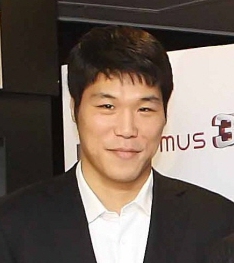
Seo Jang-hoon is a South Korean former professional basketball player, who is currently active as an entertainer and variety show star.
Lee Sung-hyun, also known as Mowg, is a bassist and composer of primarily film scores. He was named Mowg because of his similar appearance to Mowgli in The Jungle Book when he was in his 20s in New York.
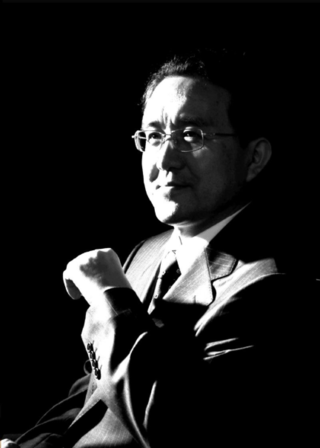
Pan Suk Kim is a South Korean professor in the field of public administration. He is currently a commission member of the International Civil Service Commission of the United Nations and the International Director of the American Society for Public Administration. Kim is currently a professor emeritus of Public Administration in the Department of Global Public Administration, Yonsei University, Mirae Campus in South Korea.

Park Eunha or Enna Park is a South Korean diplomat served as the South Korean Ambassador to the UK during President Moon Jae-in administration from 2018 to 2021. She was the first woman to assume the post as well as the second woman and the first female career diplomat to represent Korea in P5 nations.
Song Ok-joo is a South Korean politician and two-term parliamentarian currently representing Hwaseong at the National Assembly.
Cho Hyun-ok, also known as Cho Hyun-ock, is a South Korean politician previously served as President Moon Jae-in's first Senior Presidential Secretary for Personnel Affairs - the first woman to assume such post - and currently serving as his ambassador to Germany from 2020.
Kang Hyunhwa is a South Korean professor of Korean language and literature at Yonsei University served as the 2nd President - and the first woman President - of King Sejong Institute Foundation responsible for operating King Sejong Institutes and developing their programmes from 2018 to 2021.

South Korea and the countries that comprise Africa have a history of political, economic, militaristic, social, and cultural relations with one another since South Korea's establishment.

Shin Shin-ae is a South Korean actress and trot singer. She has been loved by the public by appearing in various media, including televisions programs, television dramas, movies, and theater plays. She is known for her recent roles in television drama Hometown Cha-Cha-Cha and Lost. She is also known as scene stealer in box office movie Extreme Job (2019). She reunited with her Extreme Job costar Lee Dong-hwi in the fifth film of Myung Film Lab and the hot topic of the 2019 Jeonju International Film Festival, in movie Gukdo Theater (2019).













